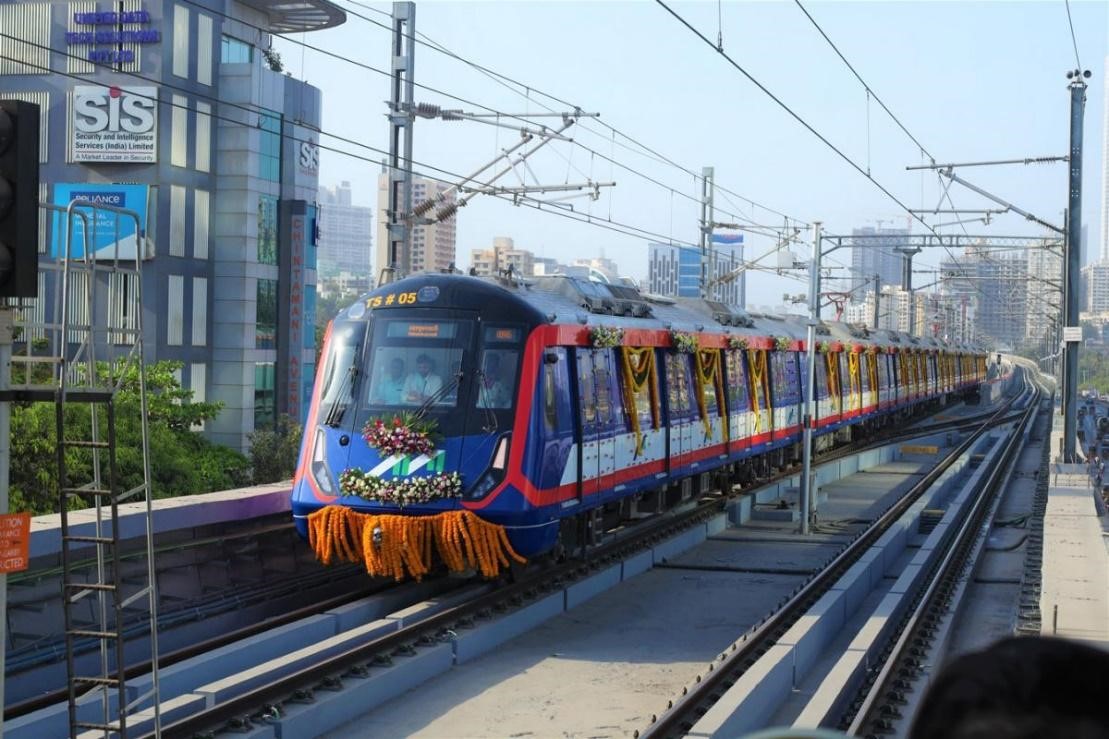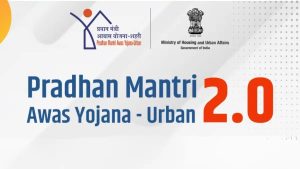Mumbai, the bustling financial capital of India, is on the verge of a massive transportation overhaul. Among the most awaited projects is Mumbai Metro Line 8, also known as the Gold Line. Designed to connect two crucial airports — Chhatrapati Shivaji Maharaj International Airport (CSMIA) in Mumbai and the upcoming Navi Mumbai International Airport (NMIA) — this ambitious corridor is set to transform regional connectivity. With increasing congestion on roads and growing air traffic, the need for an efficient metro link between these two hubs has never been more urgent.
In this blog, we’ll take an in-depth look at every aspect of Metro Line 8 — from its route map and station list to current status, connectivity advantages, and projected completion date. Let’s dive in systematically.
-
Introduction: The Strategic Importance of Mumbai Metro Line 8
The Maharashtra government has given the green light to Metro Line 8 between Mumbai Airport and NMIA. This vital link will not only cater to the heavy passenger movement between the two airports but also ease pressure on road networks like the Sion-Panvel Highway and Eastern Freeway. The corridor will operate as an airport express line, minimizing travel time to just 30-40 minutes, which currently takes over 2 hours during peak traffic.
With urban sprawl extending into Navi Mumbai, this metro line is poised to serve as a backbone for seamless intercity transit. In fact, the Maharashtra government has approved Metro Line 8 to connect Mumbai and Navi Mumbai airports, addressing a long-standing demand from commuters and planners alike.
-
Mumbai Metro Line 8 Route Map: A Comprehensive Overview

If you are wondering about the Mumbai Metro Line 8 route map, here’s an easy breakdown:
- Start Point: Chhatrapati Shivaji Maharaj International Airport (CSMIA), Andheri
- End Point: Navi Mumbai International Airport (NMIA), Ulwe
- Length: Approximately 35 kilometers
- Corridor Type: Airport Express, mostly elevated with underground stretches near airport zones
- Color Code: Gold Line, hence also referred to as Mumbai Metro Gold Line 8
The Mumbai Metro Line 8 map will feature integration points with existing and upcoming metro lines like Line 3 (Colaba-SEEPZ) and Line 7 (Dahisar East-Andheri East), ensuring smooth transitions for commuters.
-
Mumbai Metro Line 8 Stations List: Stops That Matter

Here’s the provisional Mumbai Metro Line 8 stations list based on DPR (Detailed Project Report) submissions:
- CSMIA Terminal 2
- Marol Naka (Interchange with Metro Line 1 & 3)
- Saki Naka (Interchange with Metro Line 1)
- Powai
- Kanjurmarg (Interchange with Metro Line 6)
- Mulund East
- Airoli
- Ghansoli
- Koparkhairane
- Belapur CBD
- NMIA Terminal 1
- NMIA Terminal 2
This Mumbai Metro Gold Line 8 stations list is designed to maximize catchment areas, including key residential and commercial zones of Mumbai and Navi Mumbai.
-
Metro Line 8 Mumbai Connectivity: Transforming Airport Commutes

The Mumbai Metro Line 8 connectivity is a game-changer for both local and international passengers. Here’s how:
- Airport-to-Airport Connectivity: Direct access between CSMIA and NMIA without road congestion.
- Business Districts: Easy reach to SEEPZ, MIDC, and Powai IT hubs.
- Residential Hubs: Enhanced linkages for suburbs like Kanjurmarg, Mulund, and Navi Mumbai sectors like Ghansoli and Koparkhairane.
- Inter-Metro Integration: Seamless interchange with Mumbai Metro Lines 1, 3, and 6, boosting cross-city travel.
This makes the Line 8 Mumbai Metro an integral part of Mumbai’s expanding urban transit ecosystem.
-
Mumbai Metro Line 8 Status: Current Progress
Let’s talk facts about the Mumbai Metro Line 8 status as of 2025:
- Approval Stage: The Maharashtra government has cleared Metro Line 8 between Mumbai Airport and NMIA.
- Detailed Project Report (DPR): Submitted and approved by MMRDA and CIDCO.
- Funding: Jointly backed by the State Government and private investors, with prospects of international financing.
- Tendering: Pre-construction bids are expected to roll out by late 2025.
The project’s emphasis is on high-speed rail technology with airport-standard amenities, including in-town check-in facilities.
-
Mumbai Metro Line 8 Completion Date: When Will It Be Ready?
The question on every commuter’s mind is: When will Metro Line 8 Mumbai be operational?
As per current estimates:
- Mumbai Metro Line 8 completion date is targeted for late 2028 to early 2029.
- Phase-wise construction is expected to begin by mid-2026 after awarding contracts.
- The line aims to be partially operational by 2028 in tandem with the opening of NMIA Phase 1.
-
Economic and Urban Impact of Metro Line 8, Mumbai
This metro line isn’t just about transport — it’s about shaping the future of Mumbai and Navi Mumbai. Here are the projected benefits:
- Boost to Real Estate: Areas along the corridor, like Kanjurmarg and Powai, will witness increased property values.
- Employment Generation: Thousands of jobs during construction and operations.
- Eco-Friendly Travel: Reducing dependency on road traffic, leading to lower emissions.
- Enhanced Tourism: Faster airport transfers will bolster Mumbai’s tourism potential.
-
Metro Line 8 Mumbai Stations: Interchanges and Facilities
Let’s break down the interchange points for better clarity:
- Marol Naka: Connects with Metro Line 1 (Versova-Ghatkopar) and Line 3 (Colaba-SEEPZ).
- Kanjurmarg: Links with Metro Line 6, creating east-west connectivity.
- Belapur CBD: Integrates with Navi Mumbai’s suburban rail and bus systems.
Facilities planned at these Metro Line 8 Mumbai stations include:
- Airport-standard lounges
- Smart ticketing kiosks
- Retail spaces and food courts
- Dedicated luggage compartments in trains
-
Interesting Facts About Mumbai Metro Line 8 Gold Line
Before we wrap up, here are some fun and important facts about the Mumbai Metro Line 8 Gold Line:
- It’s Mumbai’s first dedicated Airport Express line.
- The corridor will use high-speed rolling stock capable of up to 120 km/h.
- Smart card and mobile app ticketing will be available for smooth check-ins.
- Designed to handle 100,000+ passengers daily in the initial years.
- Offers scope for future extension towards Panvel or Dronagiri once NMIA expands.
-
Conclusion: The Future is Gold with Metro Line 8, Mumbai
In conclusion, Mumbai Metro Line 8 is poised to revolutionize airport connectivity in Mumbai and Navi Mumbai. With the Maharashtra government clearing the Mumbai Metro Line 8 project, the city is moving closer to world-class infrastructure standards. This Gold Line will not only shrink travel times but also act as a catalyst for economic growth, real estate appreciation, and sustainable urban development.
For homebuyers looking to invest near upcoming transit hubs, this corridor presents golden opportunities. At Housiey, we help you navigate these investment choices with verified listings and expert guidance.
Don’t forget to also read our in-depth blog on the MTHL Bridge, another mega infrastructure marvel shaping Mumbai’s future.






